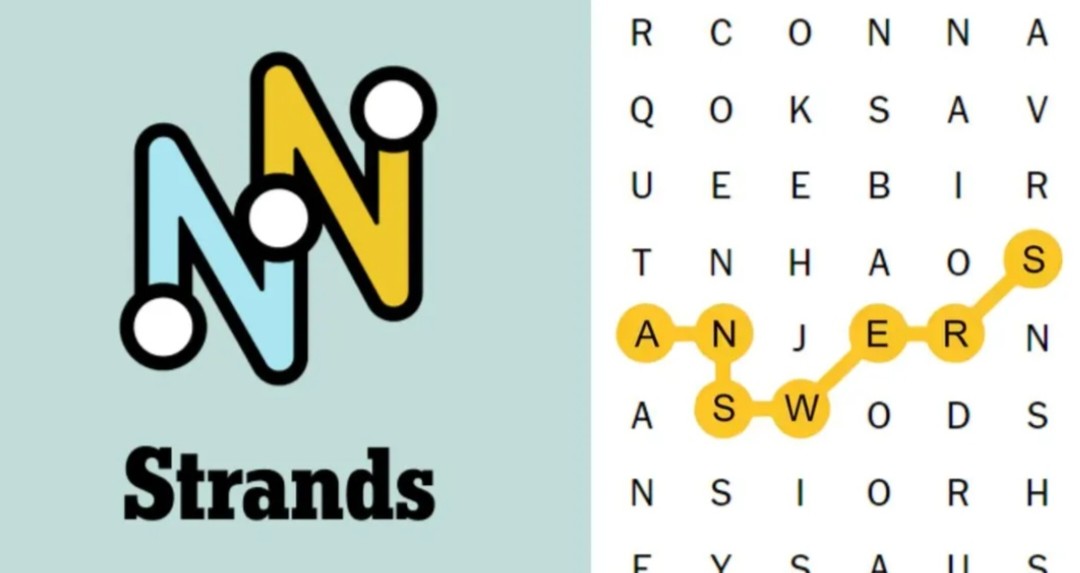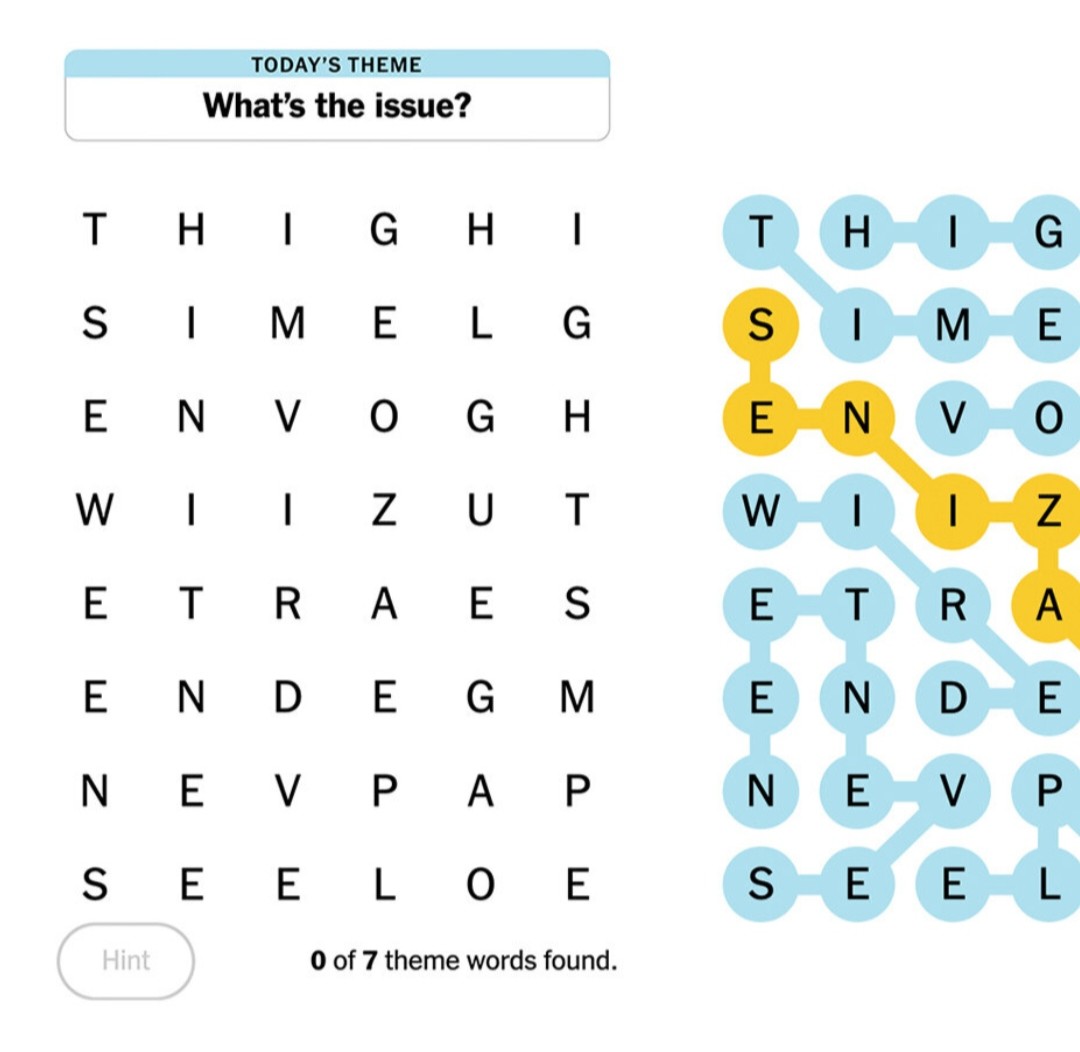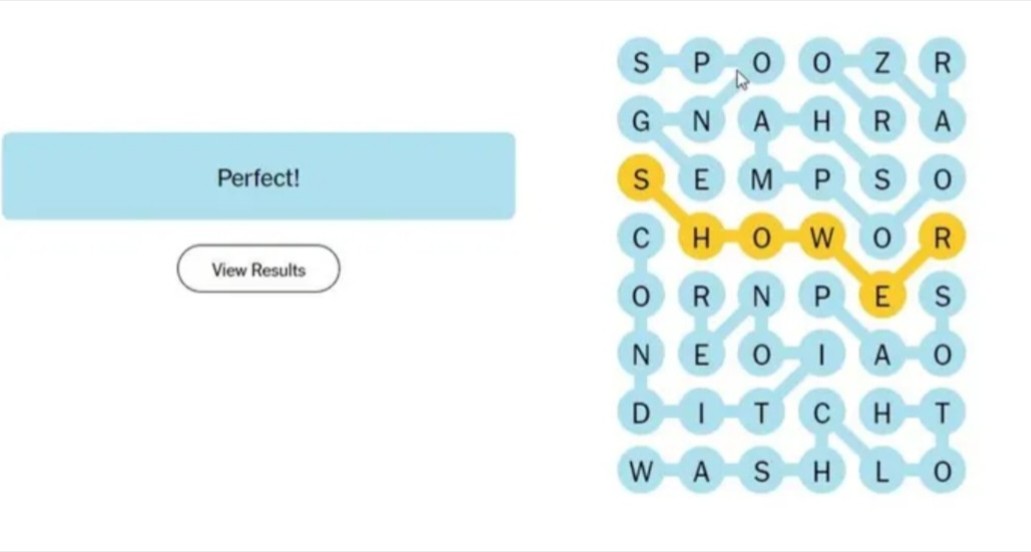Sunday’s edition of the NYT featured a challenging puzzle titled ‘Strands’. The puzzle incorporated hints, pangram, and answers to keep readers engaged and entertained. The hints provided subtle clues to help players navigate through the puzzle and solve the intricate pattern of letters. The pangram, a sentence that contains every letter of the alphabet at least once, added an extra layer of complexity to the game.
Players had to carefully decipher the pangram to unlock additional hints and clues. Once all the pieces came together, players were able to uncover the answers and complete the puzzle. Overall, ‘Strands’ offered a unique and engaging experience for puzzle enthusiasts looking for a mental challenge on a lazy Sunday afternoon.

Unlocking Clue Insights
Unlocking Clue Insights is a crucial aspect of solving mysteries and uncovering the truth behind various events. By examining clues carefully and piecing together the information they provide, investigators can gain valuable insights into what may have happened. This process involves analyzing every detail, no matter how small, and considering all possible connections and implications.
Clues can come in many forms, such as physical evidence, witness statements, or even subtle behavioral cues. Each clue is like a piece of a puzzle, and by fitting them together in the right way, a clearer picture of the truth can emerge. This process requires patience, critical thinking, and a keen eye for detail. It also involves a certain level of creativity, as sometimes the most important insights come from unexpected sources or interpretations.
Ultimately, unlocking clue insights is a challenging but rewarding endeavor that can lead to a greater understanding of complex situations and help bring justice to those involved. By approaching each clue with an open mind and a determination to uncover the truth, investigators can make significant progress in solving mysteries and finding answers to difficult questions.
Identifying Essential Letters
Identifying essential letters in a given context is crucial for effective communication. Some letters carry more weight and importance than others, and recognizing these key elements can help convey the intended message clearly and efficiently. When identifying essential letters, it is important to consider the purpose of the communication and the intended audience. For example, in a business email, key information such as dates, times, and action items should be clearly highlighted to ensure that the recipient understands the message and can respond appropriately.
In a personal letter, essential letters may include expressions of emotion, gratitude, or important updates on personal matters. By identifying essential letters, the sender can prioritize their message and ensure that the most important information is communicated effectively. This can help to avoid confusion and misunderstandings, leading to more successful interactions and relationships. In summary, identifying essential letters is a valuable skill that can enhance communication and ensure that messages are received and understood as intended.

Strategies for Optimal Word Formation
When it comes to creating words, there are several strategies that can help ensure optimal word formation. One key strategy is to consider the root of the word and its meaning. By understanding the root of a word, you can better grasp its intended meaning and use it in the appropriate context. Another important strategy is to look at the prefixes and suffixes that can be added to a word to alter its meaning or create new words.
By being aware of these affixes, you can expand your vocabulary and communicate more effectively. Additionally, understanding the rules of grammar and syntax can help you form words that are clear and concise. By following these rules, you can avoid confusion and ensure that your words are understood correctly. It is also beneficial to read widely and expose yourself to a diverse range of vocabulary. This can help you to see how words are used in different contexts and expand your own word formation skills. Finally, practicing word formation regularly can help you to become more proficient at creating and using words effectively. By incorporating these strategies into your language learning routine, you can improve your word formation skills and become a more effective communicator.
Maximizing Score Potential
Maximizing score potential is a common goal for many individuals in various aspects of life. Whether it be in academics, sports, or business, the desire to achieve the highest score possible is a natural drive. Setting high goals and working towards them can lead to increased motivation, focus, and dedication. It is important to remember that maximizing score potential does not necessarily mean taking shortcuts or cutting corners. Instead, it involves putting in the effort, time, and resources needed to achieve the desired outcome.
This may involve seeking help from mentors or professionals, practicing regularly, and constantly striving for improvement. Additionally, it is important to set realistic and achievable goals to avoid becoming discouraged or overwhelmed. By consistently pushing oneself to do their best and seeking opportunities for growth and development, individuals can maximize their score potential and achieve success in their chosen field. Ultimately, the journey towards maximizing score potential is a personal one, and each individual must find their own path to success through hard work, determination, and perseverance.

Maximizing Score Potential
Maximizing score potential is a goal that many individuals strive to achieve in various aspects of their lives. Whether it be in academics, sports, or any other competitive arena, the desire to reach the highest possible score is a natural instinct for many. This drive for excellence pushes individuals to work harder, practice more, and constantly seek ways to improve their performance. By focusing on maximizing their score potential, individuals are able to push themselves beyond their limits and achieve levels of success that they may have never thought possible.
This relentless pursuit of perfection is what sets high achievers apart from the rest, as they are willing to put in the extra effort and dedication required to reach their goals. By constantly seeking ways to improve and pushing themselves to their limits, individuals can unlock their full potential and achieve scores that they may have never thought possible. In the end, the satisfaction of knowing that they have done everything in their power to maximize their score potential is a reward in itself, regardless of the outcome. So, whether it be through practice, perseverance, or sheer determination, the journey towards maximizing score potential is a noble pursuit that can lead to great success and personal fulfillment in the long run.